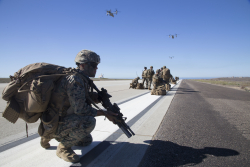The nation’s military has faced a period of humiliation and disgrace following the events surrounding the withdrawal from Afghanistan in 2020. The chaotic scenes at Hamid Karzai International airport highlighted a lack of planning and coordination, leading to a disorganized and embarrassing evacuation effort. The failure to anticipate the rapid collapse of the Afghan government and security forces, as well as the swift advance of the Taliban, exposed significant shortcomings in the military’s intelligence and strategic decision-making.
The images of desperate Afghans clinging to departing aircraft and the tragic loss of lives during the evacuation further tarnished the reputation of the military and raised questions about the effectiveness of its leadership. The scenes of chaos and confusion at the airport underscored the lack of preparedness and contingency planning for such a scenario, leading to a sense of betrayal among Afghan allies and a loss of credibility on the global stage. The military’s inability to secure the safe passage of American citizens and Afghan allies, as well as the abandonment of military equipment and facilities, further exacerbated the sense of failure and incompetence.
The aftermath of the Afghanistan withdrawal saw a wave of criticism and scrutiny directed at the military’s leadership and decision-making processes. The lack of accountability and transparency in the handling of the evacuation raised concerns about the military’s ability to learn from its mistakes and adapt to changing circumstances. The failure to effectively communicate with the public and address concerns about the withdrawal process further eroded trust and confidence in the military’s capabilities, leading to calls for greater oversight and reform within the organization.
As the nation grapples with the fallout from the Afghanistan withdrawal, the military faces a challenging path towards rebuilding its reputation and restoring public trust. The lessons learned from this humiliating period must be heeded to prevent similar failures in the future and to ensure that the military remains a reliable and effective force for national security. It is imperative that the military leadership takes responsibility for its shortcomings, implements reforms to address systemic issues, and renews its commitment to upholding the values and principles that define the nation’s armed forces. Only through introspection, accountability, and a renewed focus on excellence can the military regain its standing as a respected and trusted institution.









